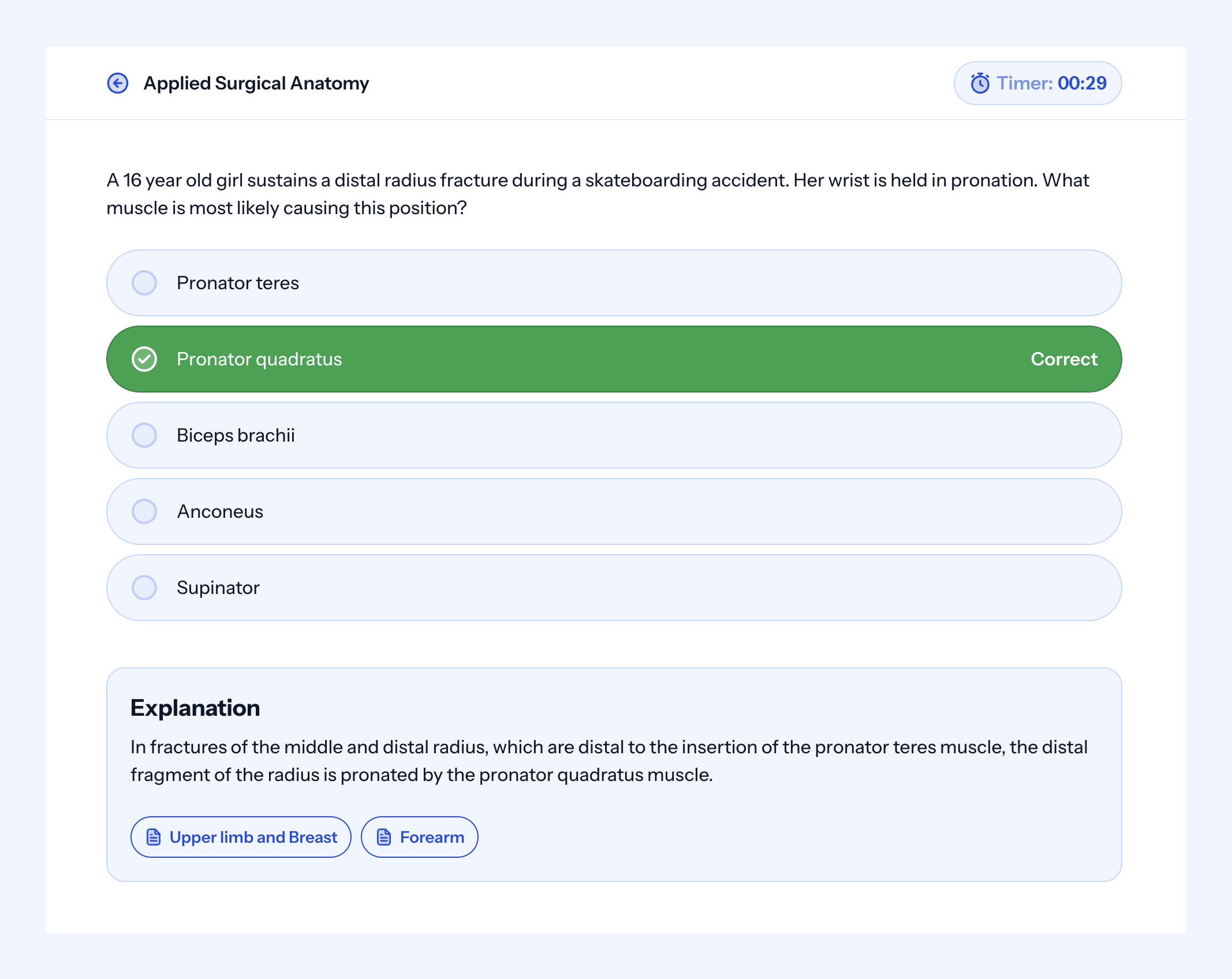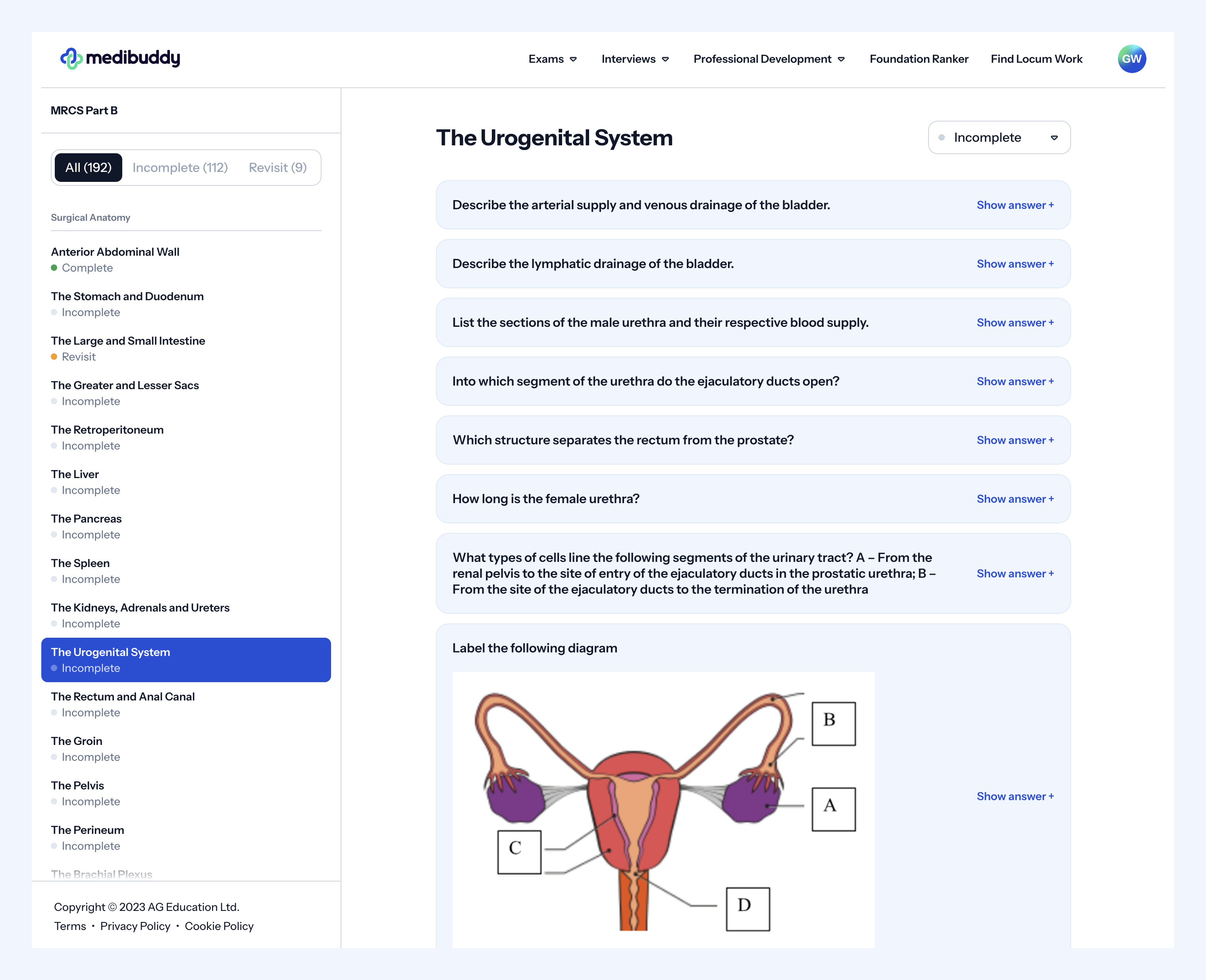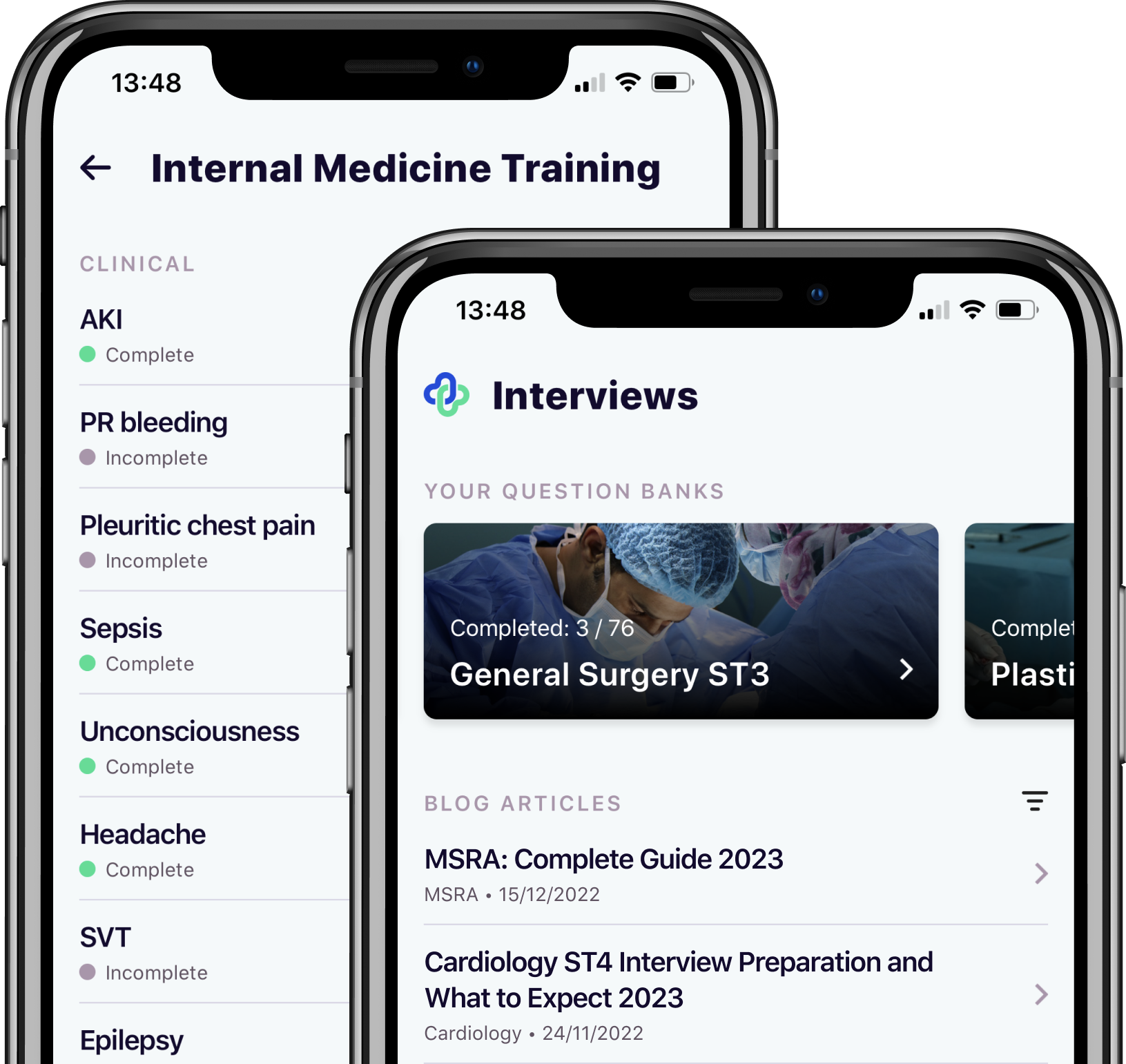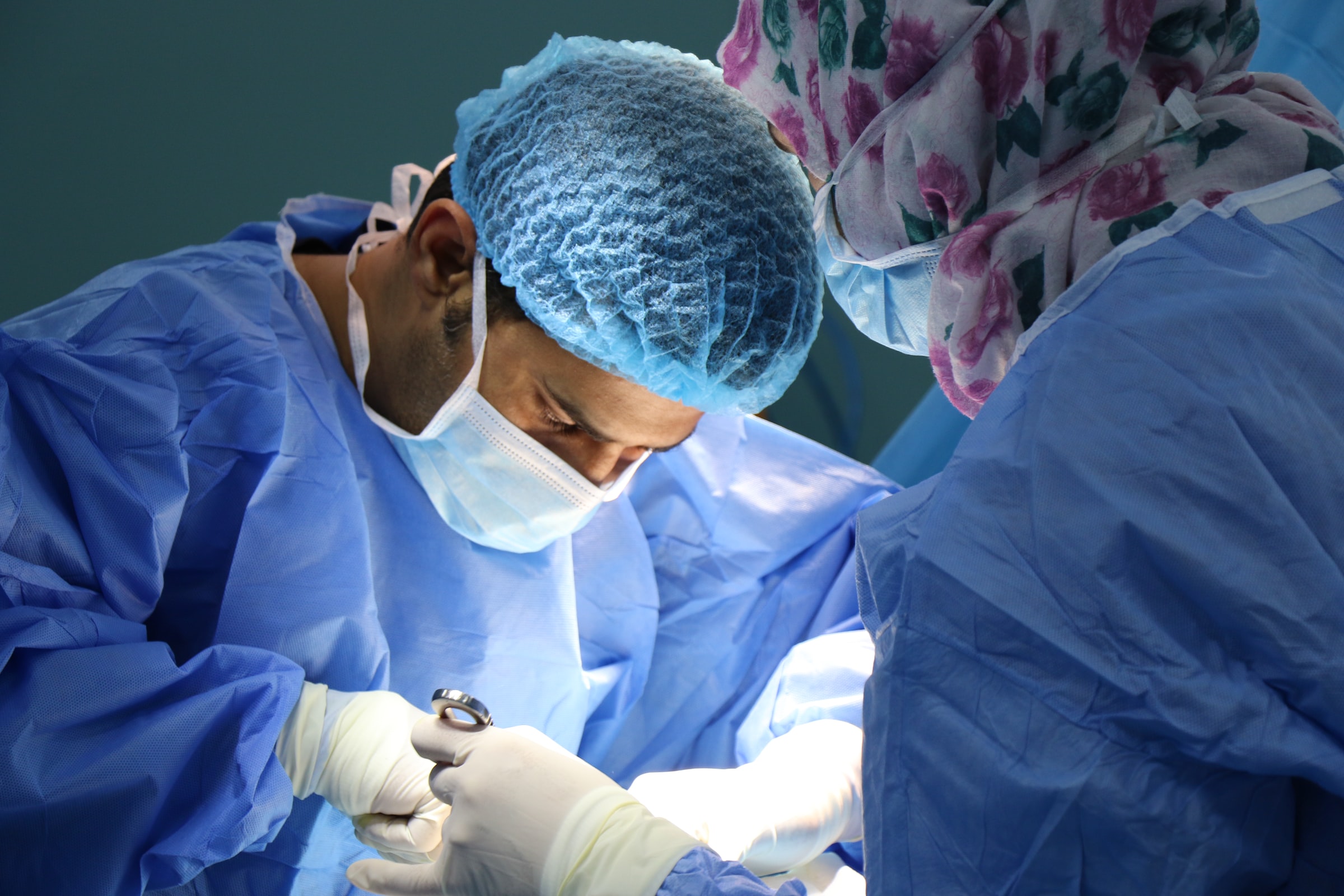
4 Most Common Mistakes Made by MRCS Candidates
If you’re planning to undertake the Membership of the Royal College of Surgeons (MRCS) exam, and are concerned about the relatively low pass rate (for Part A in particular), the following will help you to avoid common mistakes made and ensure that your exam preparations are as effective as possible. You’ll also find guidance on planning your revision, prioritising key areas to enhance your performance and recommended textbooks to support your learning.
Exam structure
The MRCS assesses whether you have the relevant knowledge, skills, clinical competence and experience expected at the end of core surgical training and for entry onto specialty training (ST3).
The exam consists of two parts:
- MRCS Part A – a written paper
- MRCS Part B – an objective structured clinical examination (OSCE)
MRCS parts
The MRCS Part A – the written paper – is a five-hour multiple choice exam, comprising of two papers, completed on the same day (one AM and one PM).
The two papers are as follows:
- Paper 1 – applied basic sciences
- When: AM
- Duration: three hours – divided into two 90-minute sections with a 10-minute comfort break in between
- Number of questions: 180
- Paper 2 – principles of surgery in general
- When: PM
- Duration: two hours
- Number of questions: 120
The following is an example question from our MRCS Part A question bank.

As well as thousands of professionally written MRCS Part A questions, you’ll also be given an answer explanation and further reading to support your revision, to help you prepare as effectively as possible.
The MRCS Part A assesses generic surgical sciences, applied knowledge and core knowledge required in all nine speciality areas; you can find more information about these and the syllabus for Part A in our MRCS Part A Complete Guide.
You must successfully complete the MRCS Part A before you can undertake Part B of the exam.
The MRCS Part B – the OSCE – consists of eighteen examined stations, each lasting nine minutes.
The MRCS candidate guidance outlines that for each station, you’ll be given a ‘clearly defined task’, which may include ‘taking a focused history or clinical examination, interpreting an X-ray or performing a practical procedure in simulation’. Each station is marked out of a total of 20.
Part B assesses the following areas:
- Anatomy and surgical pathology
- Applied surgical science and critical care
- Clinical and procedural skills
- Communication skills
The following is an example of a surgical anatomy question from our MRCS Part B question bank.

As with the MRCS Part A question bank, you’ll be given an answer explanation, and the option to read more about the topic and extend your learning further with the ‘Station Summary’. You’ll also see how many marks are awarded for each question.
A full breakdown of the topics covered and the number of questions for each can be found in the priorities section below. You can also find more information about the MRCS Part B, including exam dates, scoring and how to pass, in our MRCS Part B Complete Guide.
Top mistakes
It goes without saying that how you prepare for the MRCS will have a considerable impact on how you perform during the exam. Therefore, approaching your preparations in the most effective way is key. Here are a few simple mistakes which can be easily avoided when preparing for the exam:
- An overreliance on one type of resource
While all are valuable resources, focusing solely on either the recommended textbooks, syllabus content (see our MRCS Part A Complete Guide for more on this) or practice questions will leave you at a disadvantage. A mixture of all is essential. Textbooks and syllabus content will support you in developing your knowledge. MRCS Part A and MRCS Part B practice questions will then allow you to apply this knowledge to the types of questions you’ll be given in the exam, which in turn will help you to discover any gaps in your knowledge or areas for improvement, that can be developed further with the use of recommended texts. You can find a full list of the MRCS recommended texts in the ‘reading’ section below. - Not using practice questions effectively for MRCS Part A
As mentioned above, completing practice questions is essential during your MRCS Part A preparations, and the more time you can dedicate to these, the better. However, to make the most of them, you should aim not only to complete practice questions but to use them to develop your understanding further, by identifying areas which you need to improve and reading around the subject more if required. Quality practice questions will also provide you with feedback so you can learn from your mistakes. This is where our artificial intelligence powered, adaptive MRCS Part A question bank will help you. It uses state-of-the-art algorithms to identify your strengths and weaknesses, and tailors questions to this, to ensure that your revision is focused on the areas which you need to develop. This helps you to progress faster and make more effective use of your MRCS preparation time. - Not managing time effectively during the MRCS Part A exam
While this appears more about the exam itself, rather than your revision, how you prepare for the exam can support you with this. Practice mock tests are useful in your preparations, as they allow you to gain experience of the time pressure of the exam, as well as the stamina required to complete it (remember the MRCS Part A is made up of a 3-hour and 2-hour exam within the same day). - Underestimating the communication skills in the MRCS Part B
Communication skills make up a significant proportion of the assessment marks within the OSCE element of the exam (Part B). This offers an opportunity to pick up ‘easy’ marks if you can demonstrate these skills, so it’s worth ensuring that you don’t neglect these during your preparations. Simple actions such as practising with others, using your clinical time and reflecting on how you can improve your communication skills will enhance your preparations and help you to use communication skills to your advantage during the OSCE.
How to pass the MRCS
As mentioned previously, the pass rate for Part A of the MRCS is relatively low. The most recent figures published, for exams in September 2021 and May 2022, showed pass rates (the proportion of candidates passing the exam) of 45.7% and 43.4% respectively. The September 2021 exam produced the highest ever recorded proportion of candidates passing. Similarly, the highest pass rate for the MRCS Part B was recorded during the autumn 2020 exams, with 75% of candidates passing. The proportion of candidates passing Part B of the MRCS is generally considerably higher than the pass rate of Part A.
You can find more information on how the standards are set and the pass marks agreed for the MRCS exams in the ‘results’ sections of our MRCS Part A and MRCS Part B complete guides.
While the pass rate, particularly for Part A, may seem disheartening, remember that you can attempt the MRCS Part A six times and MRCS Part B four times. However, as each attempt comes at a price to you, financially and time-wise, the following sections will support you to prepare for the exam as effectively as possible to ensure your best chance at success.
You can find further advice on preparing effectively in our MRCS Part A Preparation Blog.
Through the following sections we’ll help you to consider the following:
- Planning your revision
- How much revision time is needed for MRCS Part A and Part B
- When to book each exam
- Recommended reading
- Your revision priorities
Planning
Making a solid revision plan – and sticking to it – is invaluable for any exam preparation. However, considering the following will also help you to plan for and execute your MRCS preparations effectively:
- Plan when you intend to take the exam – the ‘how much revision time’ and ‘when to book’ sections below will help you to plan when it may be the best time.
- Ensure that you have an understanding of the test format and what’s required of you first. You may find it useful to plan this into your revision time, preferably before commencing any reading or practice questions, so that you can tackle these more efficiently.
- Likewise, explore what content is covered and what resources will support your preparations; this will help you to plan your revision time. The reading list below will give you an idea of resources, and you can find more guidance in our MRCS Part A and MRCS Part B complete guides.
How much revision time
The length of time required to prepare for the MRCS will depend largely on how much time you can dedicate to your revision during this period. For the MRCS Part A, candidates generally find that at least three months is required to prepare thoroughly, and that includes a packed revision timetable. However, if you have less time to regularly revise, you’re more likely to need in the region of six to twelve months. For MRCS Part B, approximately three months should be sufficient time, but again, this will depend on how much time you can dedicate to it.
Our MRCS Part A and MRCS Part B question banks offer different subscription options so you can choose the plan that is right for you and how much time you have to revise.
Maximise your performance in the MRCS exams by preparing effectively and efficiently.
This is where the timing of your exam can make a huge difference; if this is planned for the best time in your schedule, it’ll allow you to dedicate more time to your revision, reduce the length of preparation time you need and have a positive effect on how well you can prepare overall. Consider which placement you will (hopefully) have the most time to revise and prepare for the MRCS during; booking your exam for just after this will ensure that you give yourself the best possible chance to prepare as efficiently as possible.
When to book
The MRCS candidate guidance recommends that you undertake Part A in Specialty/Core Training Year 1 (ST/CT1) and Part B in Specialty/Core Training Year 2 (ST/CT2). However, provided you meet the eligibility criteria, you can take the MRCS earlier, but bear in mind this may put you at a disadvantage if you have not had any surgical rotations.
Part A and Part B MRCS exams are held three times per year – for Part A, these are in January, May and September – with the deadline for applying always two to three months before the exam.
Once you’ve decided when you’ll take the exam, booking it as soon as possible is recommended. Having a deadline to work towards may help you to get organised and increase your motivation to revise. It’ll also ensure that you don’t miss the deadline for applying and, therefore, the exam you wish to enter.
If you live outside of the UK or Ireland, additional considerations, such as the need to travel or registration with the General Medical Council (GMC), may also be factors in when you decide to book your exam. Our MRCS for Overseas Doctors blog will provide you with all the information you need about the MRCS if you’re an international graduate.
Reading
The MRCS candidate guidance provides the following list of recommended textbooks for preparing for the MRCS exam:
Basic science textbooks
- Agur AMR, Dailey AF. Grant’s Atlas of Anatomy, 12e. Lippincott, Williams & Wilkins, 2008.
- Netter FH. Atlas of Human Anatomy, 5th edn. Saunders, 2010.
- Sinnatamby CS. Last’s Anatomy: Regional and Applied, 12th edn. Churchill Livingstone, 2011.
- Barrett KE, Barman SM, Boitano S, Brooks HL. Ganong’s Review of Medical Physiology, 23rd edn. McGraw-Hill, 2009.
- Kumar V, Abbas AK, Fausto N, Mitchell R. Robbins Basic Pathology, 8th edn. Saunders, 2007.
Clinical textbooks
- Garden OJ, Bradbury AW, Forsythe JLR, Parks RW. Principles and Practice of Surgery, 5th edn. Elsevier, 2007.
- Williams NS, Bulstrode CJK, O’Connell PR, eds. Bailey and Love’s Short Practice of Surgery, 25th edn. Hodder Arnold, 2008.
Priorities
By looking at the breakdown of the exam topics and the number of questions for each, it’s easy to identify areas where you can pick up a considerable amount of marks if you’re well prepared, and therefore, reveal what you should prioritise when revising – particularly if one of the key areas is weaker.
The MRCS candidate guidance provides a full breakdown of the topics covered in each exam and the number of questions relating to each. The following provides a summary of this:
MRCS Part A, Paper 1 – Applied Basic Sciences (180 Questions)
- Applied Surgical Anatomy – 75 questions
- The majority of these are regional anatomy (63 questions)
- Applied Surgical Physiology – 45 questions
- 15 of which are general physiological principles
- The rest are physiology of specific organ systems relevant to surgical practice – 5 questions per: cardiovascular, respiratory, gastrointestinal, urinary, endocrine and neurological
- Applied Surgical Pathology – 37 questions
- 20 questions relating to the pathology of specific organ systems relevant to surgical care (2 per system)
- Pharmacology as applied to surgical practice – 8 questions
- Microbiology as applied to surgical practice – 7 questions
- Imaging – 5 questions
- Data interpretation and audit – 3 questions
MRCS Part A, Paper 2 – Principles of Surgery in General (120 Questions)
- Common congenital and acquired surgical conditions – 45 questions
- Total of 12 conditions, with varying number of questions for each, including gastrointestinal disease and orthopaedic conditions
- Perioperative management – 35 questions
- Questions spread across 8 sections, including preoperative assessment and management, postoperative care and intraoperative care
- Assessment and management of patients with trauma – 30 questions
- Questions spread across 6 sections, including organ-specific trauma and fractures and dislocations
- Surgical care of children – 7 questions
- Medico-legal aspects of surgical practice – 3 questions
MRCS Part B (18 stations)
These stations are grouped into two broad categories – knowledge and skills – which are then broken down further as follows:
- Knowledge – 8 stations
- Surgical anatomy – 3 stations
- Surgical pathology – 2 stations
- Applied surgical science and critical care stations – 1 generic critical care; 1 generic interpretation of written data; 1 generic interpretation of visual information
- Skills – 10 stations
- Communication skills – 4 stations:
- Generic history taking – 2 stations
- Generic giving information to a patient/relative – 1 station
- Generic giving information to another health professional – 1 station
- Clinical and procedural skills – 6 stations:
- Physical examination – 4 stations
- Generic skills – 2 stations
- Communication skills – 4 stations:
You can find a further breakdown of this in the MRCS candidate guidance and use this to identify key areas to prepare for in the MRCS exams. This will help to guide your use of the recommended texts during your exam preparations, which along with practice questions and mock tests, will enable you to prepare thoroughly for the MRCS. For thousands of professionally written practice questions and tests, check out our adaptive MRCS Part A question bank and our MRCS Part B question bank.

Take your subscriptions with you
Our mobile app allows you to access your interview and exam question banks wherever you are.




